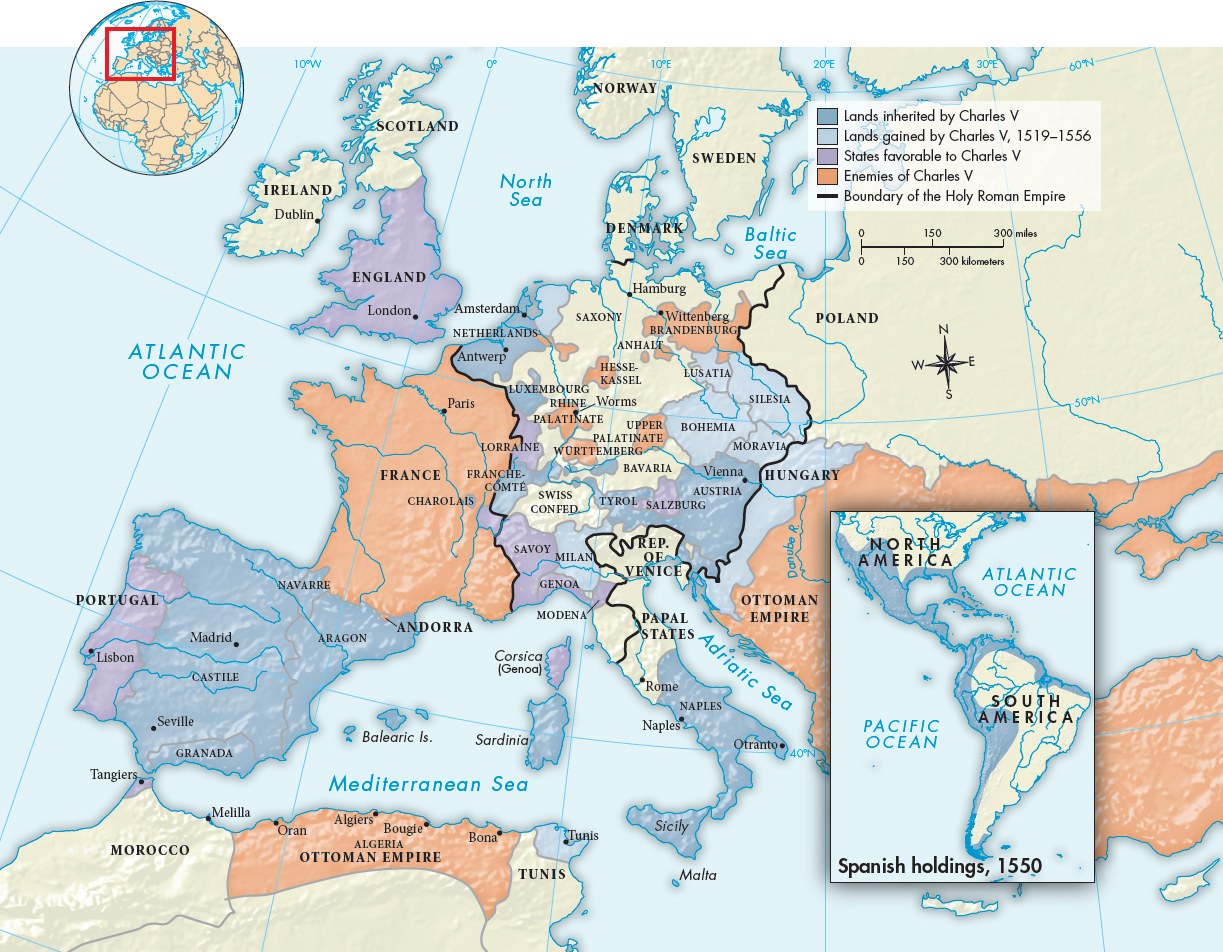A History of World Societies:
Printed Page 439
A History of World Societies Value
Edition: Printed Page 435
The Habsburgs
War and diplomacy were important ways that states increased their power in sixteenth-
The benefits of an advantageous marriage stretched across generations, as can be seen most dramatically with the Habsburgs. The Holy Roman emperor Frederick III, a Habsburg who was the ruler of most of Austria, acquired only a small amount of territory — but a great deal of money — with his marriage to Princess Eleanore of Portugal in 1452. He arranged for his son Maximilian to marry Europe’s most prominent heiress, Mary of Burgundy, in 1477; she inherited the Netherlands, Luxembourg, and the county of Burgundy in what is now eastern France. Through this union with the rich and powerful duchy of Burgundy, the Austrian house of Habsburg, already the strongest ruling family in the empire, became an international power. The marriage of Maximilian and Mary angered the French, who considered Burgundy French territory, and it inaugurated centuries of conflict between the Habsburgs and the kings of France. Within the empire, German principalities that resented Austria’s pre-
Maximilian learned the lesson of marital politics well, marrying his son and daughter to the children of Ferdinand and Isabella, the rulers of Spain, much of southern Italy, and eventually the Spanish New World empire. His grandson Charles V (1500–
